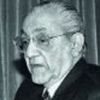The nexus: Crime & politics
The malaise is excellently described by one of the most upright police officials in the subcontinent, Tariq Khosa.
On November 3, a leading English daily published a full-page report on criminal cases against union ministers and current and former chief ministers. Most of the 1,581 cases relate to rioting, unlawful assembly, murder and attempt to murder.
In 1981, one of India’s most upright civil servants, B.K. Nehru, described the situation in these terms: “It is interesting, as an index to the kind of person who now wields power, that in one particular state no less than 30 per cent of the legislators are involved in criminal cases of one type or the other. The aim is to become a minister, but opportunities for private gain are not limited to ministers alone; these are available in plenty to all members of the legislatures.”
Apart from those convicted of crime and those facing criminal cases there are “history-sheeters with criminal records”. But who is to bring them to book? The police force, of course.
But the police is itself suborned by politicians in power. So are segments of the civil service.
As B.K. Nehru noted in 1986: “Political interference in the services had made it impossible for any law to be enforced against the supporters of the party in power in the state, be they smugglers, bootleggers, extortioners, pimps, gamblers, land grabbers or even murderers.”
The malaise is excellently described by one of the most upright police officials in the subcontinent, Tariq Khosa. His recent book, The Faltering State, establishes the consequences of political interference in criminal investigations, and is very relevant to the Indian scene as well.
English works on constitutional law deal extensively with the constitutional status of the police force. On its independence from political control rests the edifice of democracy. Indian works on constitutional law ignore this aspect.
The Association for Democratic Reforms showed that in the elections to all the legislatures from 2004 to 2013, 23 per cent of those with serious charges won as against only 12 per cent with clean records. In 1996, the Election Commission of India recommend that those against whom charges are framed should be disqualified; but to no avail. The law was amended in 2002 merely to require the disclosure of convictions and pending cases.
But why do people vote for persons of ill repute and even known criminals? This is not uncommon in some Western countries.
In the US, Adam Clayton Powell Jr was repeatedly elected to the House of Representatives, despite his notoriety for corruption. The reason was simple. He was “one of us”. Racial, communal or social polarisations in society provide an easy answer.
More complex is the situation in which there is no such divide but the people still opt for the gangster. The disease — which produces politicians who undermine public institutions — also leaves the people vulnerable to the appeals of the corrupt and criminal.
Politicians, busy in amassing power and pelf, show little interest in the social and economic conditions of the constituency that voted them to power. A study of corrupt politicians and their electoral support by three American political scientists explained the phenomenon thus: it all depends on what the voters cares about, the intensity of their concern and the candidate’s stand on these matters.
“The candidate simply takes positions on things and the voter decides those positions weigh more heavily in the candidate’s favour than the knowledge that the candidate is corrupt weighs against him. A corrupt candidate’s strategy therefore would be to take distinct positions on things many voters care about and thereby arrange as many implicit deals as possible. Hence we refer to this theory as the trading theory of corrupt voting.”
This is not all. Few are the MPs and MLAs who care to concern themselves earnestly with the problems of the people, establish a rapport with them and assure them of their continuous concern for their wellbeing. Politicians appear on the scene when elections are due, make big promises, and disappear thereafter.
In contrast, the gangster is always there — doling out the goodies, helping them solve their problems and making their voice heard in representations to the government. He secures their votes because he is always present to tell the people that he is one of them.
His success depends also on the patronage of the politicians in power. Legal reforms are easier than eradication of this vice at its very roots. As Walter Lippmann said: “In the realm of morals, the example set by the prominent is decisive. It is far more important than the exposure of the wicked. In fact, the example of the prominent shows those who administer and enforce the laws what is expected of them. This will determine how faithfully and how actively the wicked are exposed.”
By arrangement with Dawn



















